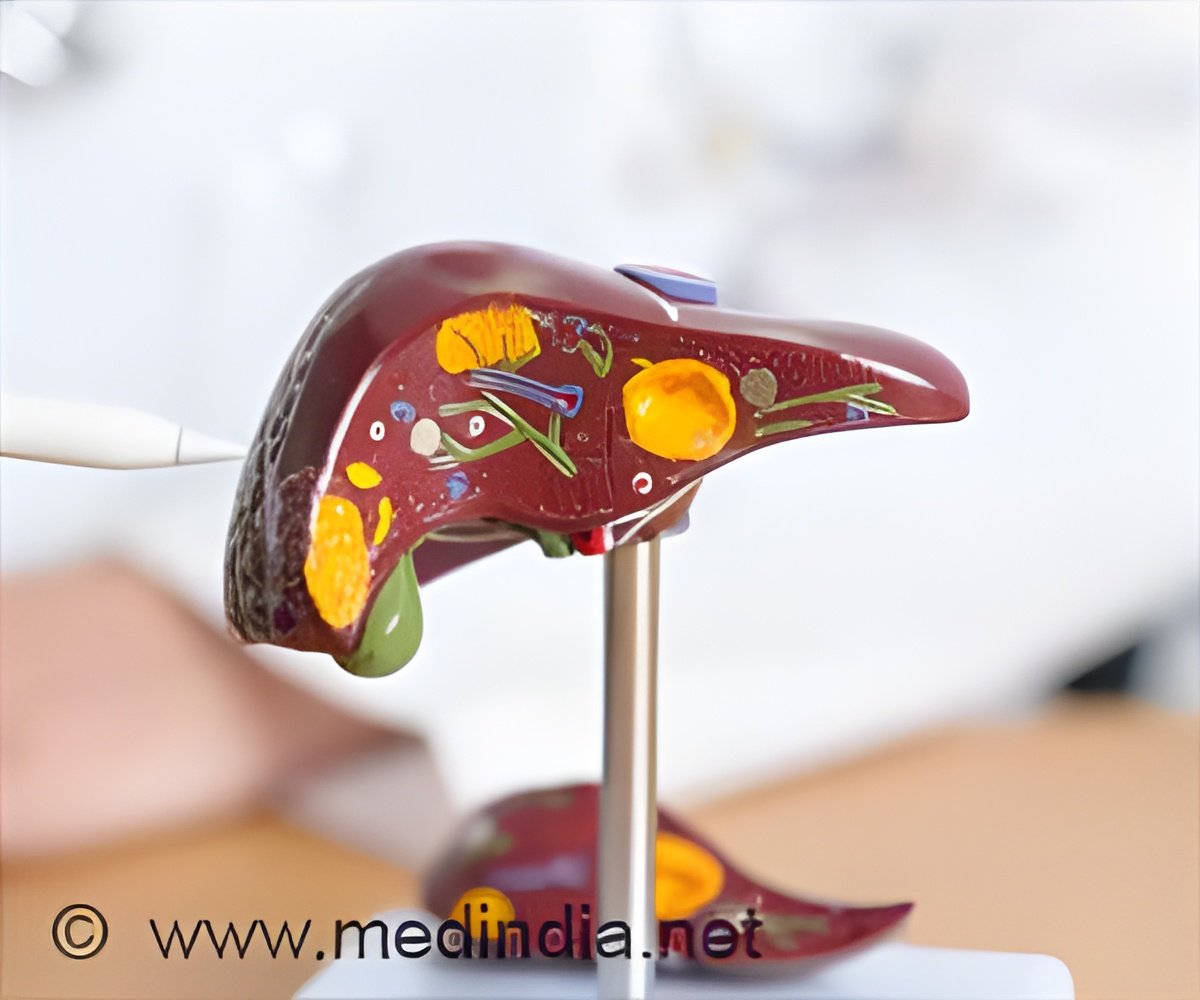
A preclinical study suggests it may soon be possible to determine which patients with hepatocellular carcinoma, a type of liver cancer, could benefit from immunotherapy. Published in Molecular Cell, the study uncovers new insights into two proteins, p62 and NBR1, and their opposing roles in regulating the interferon response in hepatic stellate cells—key immune components in the liver’s tumor defense. (1✔ ✔Trusted Source
Biomarker May Predict Immunotherapy Response in Liver Cancer
)
The findings indicate that high levels of NBR1, which suppresses immune responses, may predict poor responses to immunotherapy. Additionally, lowering NBR1 in animal models helped shrink tumors, pointing to a potential new treatment strategy for patients who don’t respond to immunotherapy.
P62 and NBR1: The Yin and Yang of Liver Cancer
“P62 and NBR1 are yin and yang,” said the study’s co-principal investigator Dr. Jorge Moscat, the Homer T. Hirst III Professor of Oncology in Pathologyand a member of the Sandra and Edward Meyer Cancer Center at Weill Cornell Medicine. “In contrast to NBR1, if p62 is high in hepatic stellate cells, a patient is protected from cancer, but if it is low, the immune system is knocked down. If NBR1 is high, the immune system is impaired, but if NBR1 is low, the immune response increases.”
Until recently, patients with hepatocellular carcinoma had few treatment options, and those that were available extended life by only a few months. Immunotherapy has offered a new alternative for these patients and may extend their lives for up to two years.
“The liver is an organ that is tremendously immune suppressed,” said co-principal investigator Dr. Maria Diaz-Meco, the Homer T. Hirst Professor of Oncology in Pathology and a member of the Meyer Cancer Center at Weill Cornell Medicine. “Reactivating the immune system is a very attractive approach that is now bearing fruit.”
However, not all patients respond to immunotherapy, and only a small percentage achieve long-term remission. Clinicians cannot currently predict which patients would benefit. “We need biomarkers to identify which patients will respond and who will achieve long-term survival,” she said.
Drs. Moscat and Diaz-Meco worked with co-first authors Dr. Sadaaki Nishimura and Dr. Juan F. Linares, a postdoctoral associate and an instructor, respectively, in the Department of Pathology and Laboratory Medicine at Weill Cornell Medicine, and Dr. Antoine L’Hermitte, formerly of Sanford Burnham Prebys Medical Discovery Institute, on the study.
Advertisement
Prior research has found that levels of the tumor-suppressing protein p62 are irreversibly depressed in patients who develop hepatocellular carcinoma. The new study shows that, usually, p62 helps promote an immune response by activating a protein called STING, which pushes NBR1 out of the way, triggering an immune response that destroys tumor cells. NBR1, by contrast, promotes the breakdown of STING and blocks the immune response. Deleting NBR1 from hepatic stellate cells in mice with hepatocellular carcinoma rescues the immune response and shrinks tumors even when p62 levels remain low.
The team is now investigating how they can develop a therapy that would degrade NBR1 in patients and block it from interacting with STING. The goal is to reactivate the immune system and help increase the effectiveness of immunotherapy. Drugs that activate STING are also in development and might provide another approach to help boost the immune response in patients with hepatocellular carcinoma. The team will also study whether knocking down NBR1 might help prevent the metastasis of many types of cancer or prevent tumors from becoming resistant to therapy.
Advertisement
Dr. Moscat and Dr. Diaz-Meco plan to continue their studies of the pathways that regulate the immune response in the liver.
“If we don’t fully comprehend the molecular mechanisms regulating these processes, immunotherapy will not progress, and we won’t be able to understand why it works in some patients and not others,” Dr. Diaz-Meco said.
Reference:
- Biomarker May Predict Immunotherapy Response in Liver Cancer – (https://news.weill.cornell.edu/news/2024/10/biomarker-may-predict-immunotherapy-response-in-liver-cancer)
Source-Eurekalert



